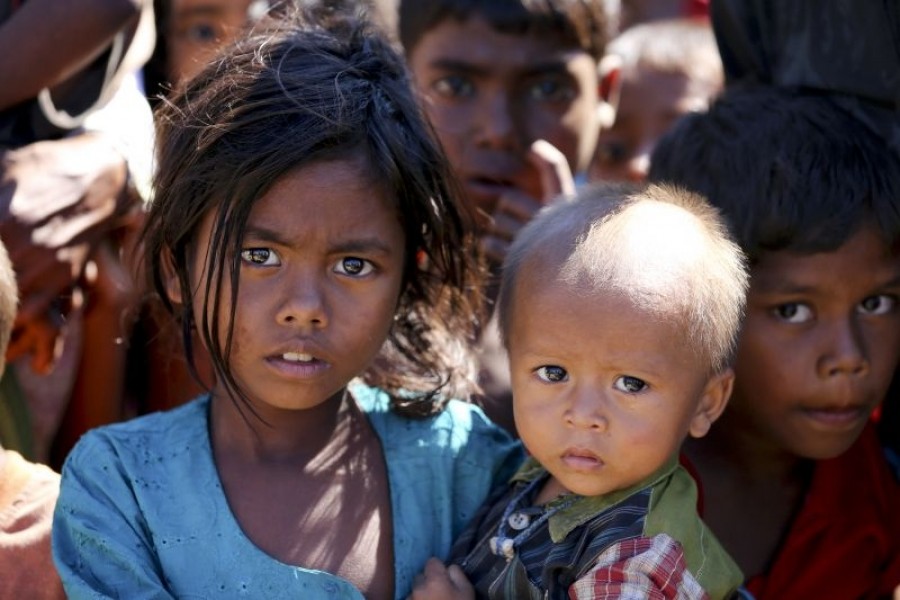UNICEF is scaling up humanitarian assistance and life-saving interventions for the refugee children and women along with the vulnerable host population in Cox’s Bazar with US$15.7 million funding received from Japan.
UNICEF, with its local partners, urgently activated emergency life-saving assistance since the crisis unfolded and called for global funding to respond to the crisis, said a press release on Tuesday.
As estimated by the Inter-Sector Coordination Group, more than 671,000 people fled violence from the Rakhine State of Myanmar since August 25, 2017 and sought refuge in the coastal district of Cox’s Bazar in Bangladesh.
Among them, more than 389,000 are children, generating one of the largest groups of displaced children in the world.
Japan recognised the desperate needs of the refugee children and their families, as well as of those who became vulnerable in the host communities in Cox’s Bazar due to massive influx and decided to assist the population.
This new grant will allow UNICEF and its partners to continue providing child protection, healthcare, safe drinking water and sanitation support to refugee children and women and their families.
It will also open up opportunities for UNICEF to include more people from the host communities and strengthen their resilience to cope with the challenges that entailed the refugee crisis.
Ambassador of Japan to Bangladesh Mr. Hiroyasu Izumi noted, “UNICEF is playing a very important role in this crisis, especially for protection of women and children.”
“Every child is entitled to have a dream and hope even when he/she is in a crisis. It is very important to save the children’s lives and their dream, he added.”
Appreciating the much-needed support in the first six months of the crisis, UNICEF Bangladesh Representative Edouard Beigbeder said that, “UNICEF Bangladesh is grateful to the Government and the people of Japan for their generous support during a time of immense crisis.”
“ With this new fund, we will be able to scale up our interventions to save more lives and continue with our ongoing support in providing safe drinking water and sanitation, healthcare to children, newborns and pregnant mothers, and strengthen resilience of the affected host population, Beigbeder said. ”
Japan has been supporting UNICEF to provide emergency humanitarian assistance and life-saving interventions to refugee and host communities since the refugee influx began on 25 August 2017.
This renewed partnership between Japan and UNICEF will bolster ongoing programmes for the refugees and the host communities.


